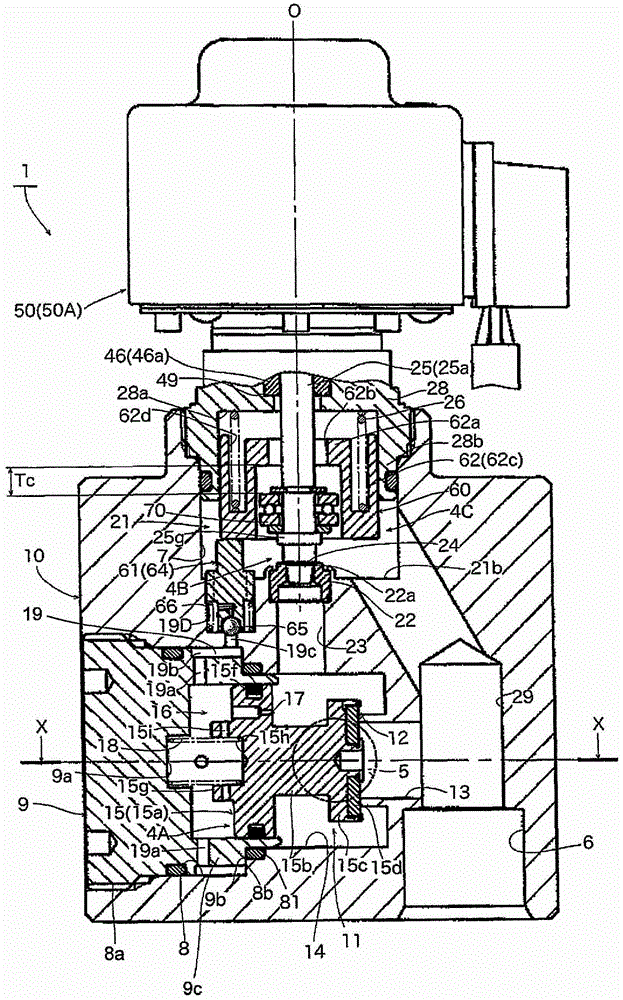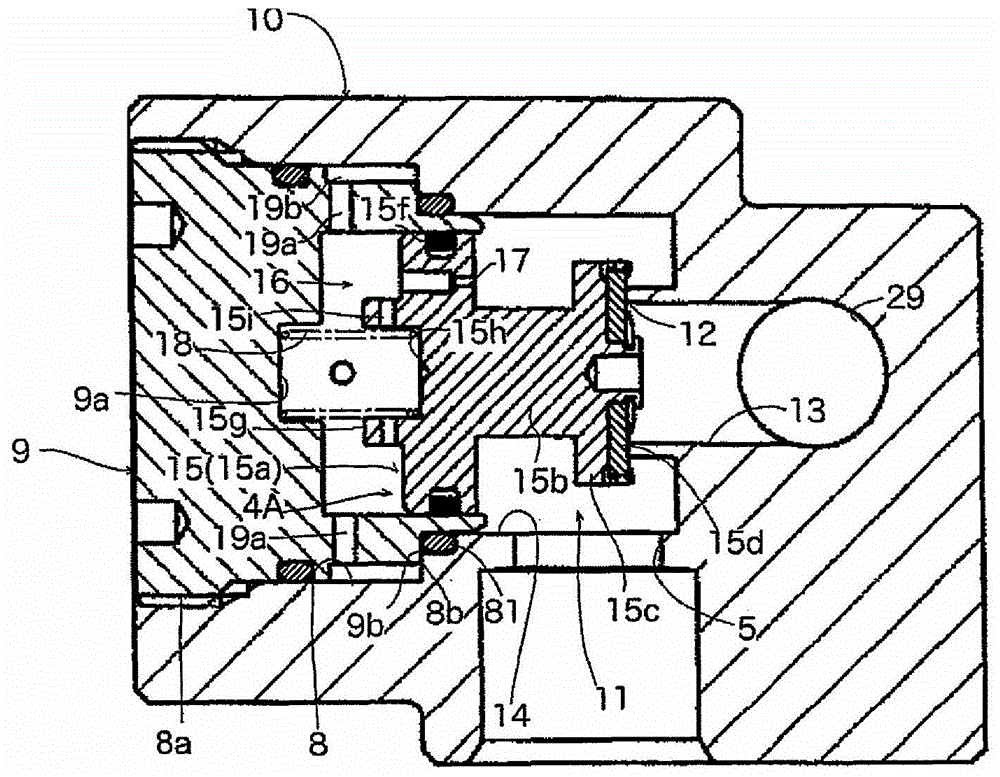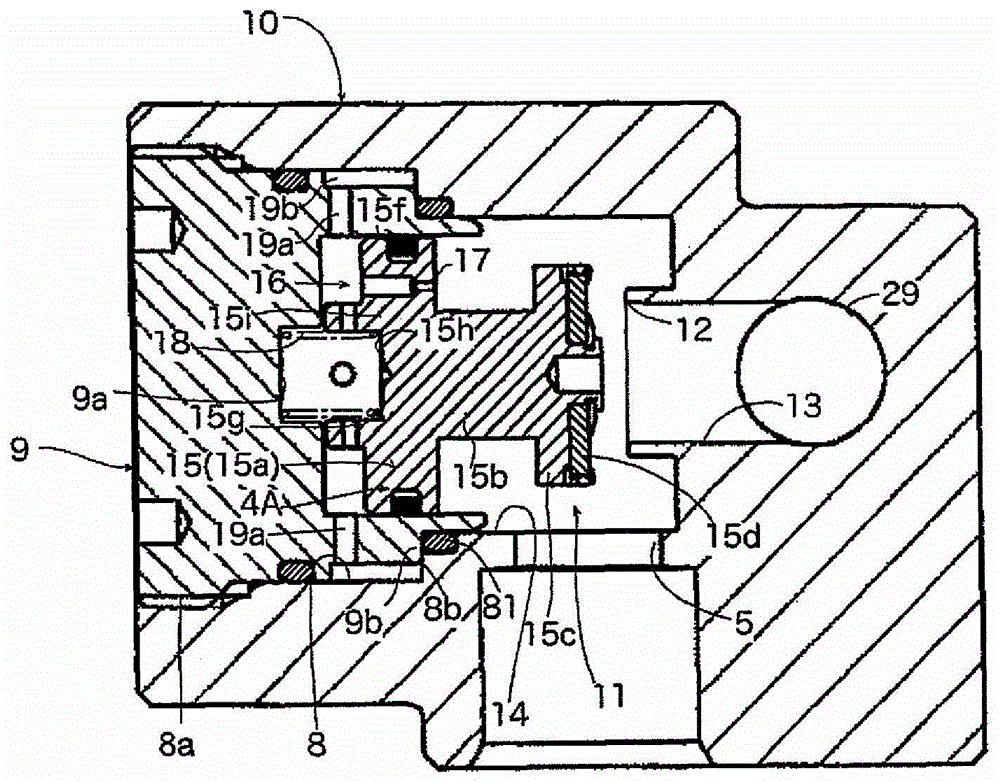Combination valve
A combination valve and spool technology, applied in the field of combination valves, can solve problems such as increased operating load, difficulty in obtaining sealing, large-scale valve body of the driving part, etc., and achieves the effect of improving flow control accuracy
- Summary
- Abstract
- Description
- Claims
- Application Information
AI Technical Summary
Problems solved by technology
Method used
Image
Examples
Embodiment Construction
[0111] Embodiments of the present invention will be described below with reference to the drawings.
[0112] figure 1 , Figure 5 , Figure 7 It is a partial longitudinal sectional view showing an embodiment of the combination valve of the present invention, and each figure shows a different operating state. In addition, Figure 2(A) is figure 1 (the first control valve for large flow rate is in the closed state), the sectional view in the direction of arrow X-X, Fig. 2(B) is Figure 7 The sectional view in the direction of the Y-Y arrow (the first control valve for the large flow rate is in the open state). The internal structure of the stepper motor 50 part of the combination valve 1 of illustrated embodiment and Figure 11 The electric valve 1' of the prior art shown has the same structure, so only the outer shape of this part is shown. In addition, in each figure, the same as that shown in Figure 9 to Figure 11 The same symbols denote the same or equivalent parts. ...
PUM
 Login to View More
Login to View More Abstract
Description
Claims
Application Information
 Login to View More
Login to View More - R&D
- Intellectual Property
- Life Sciences
- Materials
- Tech Scout
- Unparalleled Data Quality
- Higher Quality Content
- 60% Fewer Hallucinations
Browse by: Latest US Patents, China's latest patents, Technical Efficacy Thesaurus, Application Domain, Technology Topic, Popular Technical Reports.
© 2025 PatSnap. All rights reserved.Legal|Privacy policy|Modern Slavery Act Transparency Statement|Sitemap|About US| Contact US: help@patsnap.com



